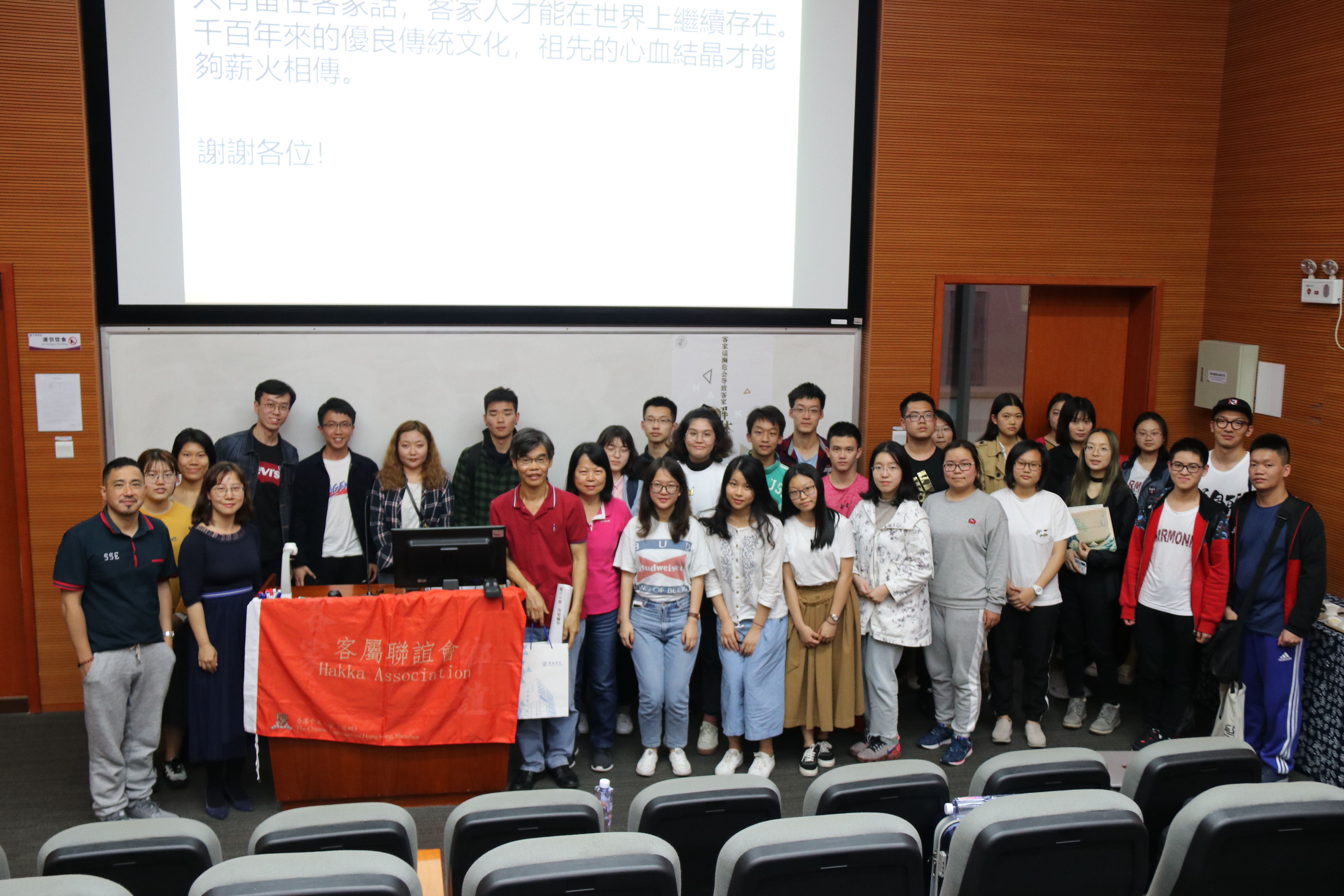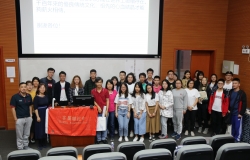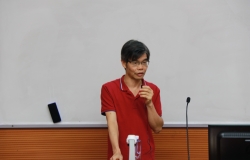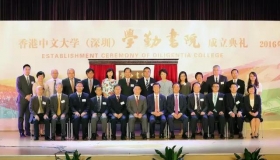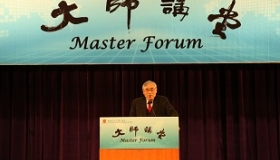Night Talk : Hakka Language & Hakka Culture
Prof. Liu Zhenfa was a very witty speaker and introduced his experiences and language learning opportunities at the beginning. Prof. Liu is a Hakka born in Hong Kong. All the residents in the village where he was born spoke Hakka. Later, he went out to study and learn Cantonese, English and Mandarin. After returning home, he found that his peers and the younger generation mostly spoke Cantonese. He couldn’t help but regret that the familiar local accent has long faded out of the people’s life as well as the language education for the children and grandchildren, In 1996, Prof. Liu began to study linguistics, mainly focusing on Hakka dialects and some relatively weak Cantonese dialects like “the ancestral words” only spoken by only the 80-year-old men.
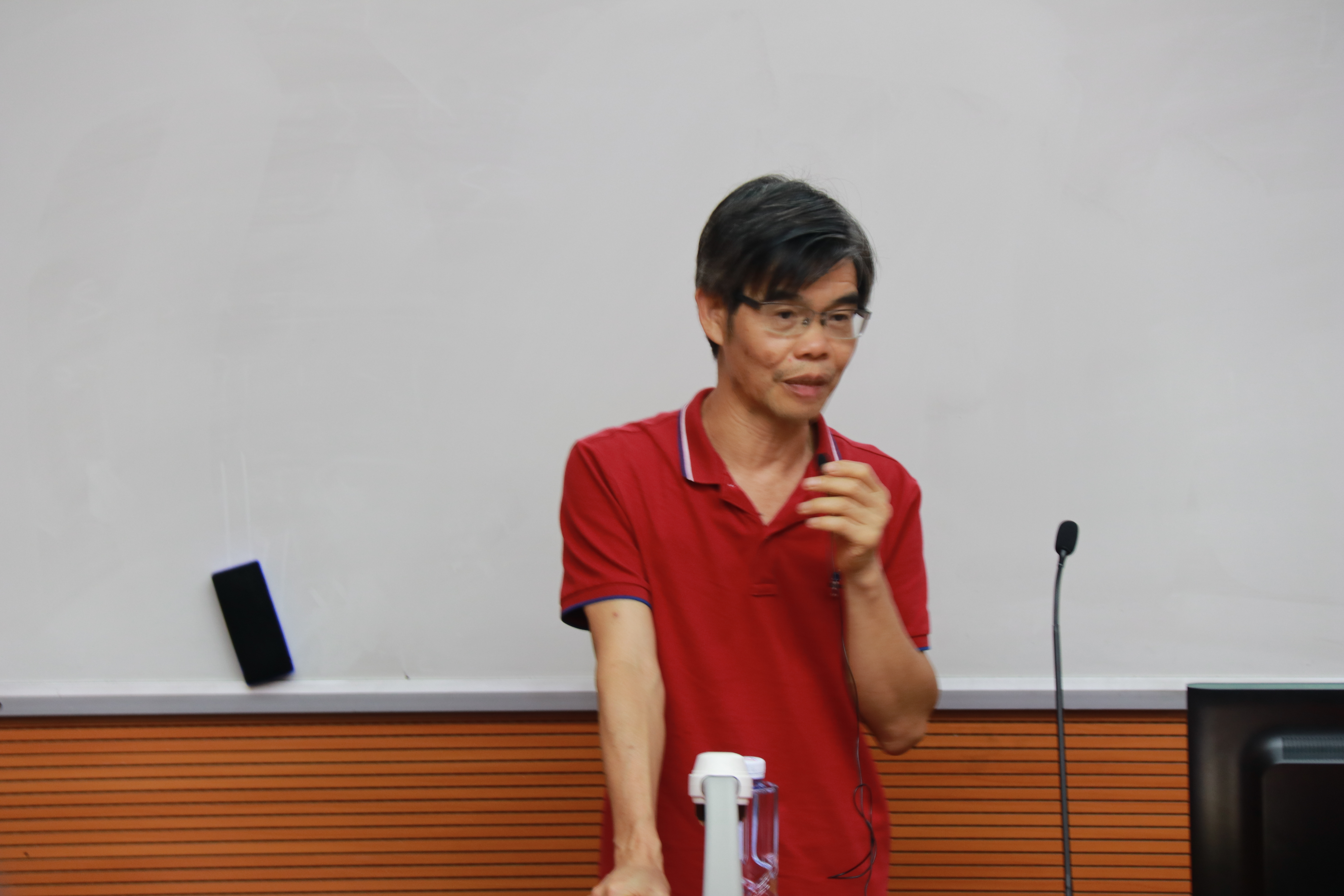
Hakka language gradually broke down over time due to its own background and internal reasons. Once upon a time, both the Hakkas and the Minnan people in the Pearl River Delta region applied their own ancestors’ words to read and educate children. As time went on, the government unified the radio and television language, Hakka dialects were withdrew from school, and Cantonese soon entered. The situation in Shenzhen was similar, but it had been delayed for about 20 years. After the reform and opening up, Hakka dialects were replaced with Mandarin. Then as immigrants flooded, Hakka dialect became a marginal language. Even parents gave up Hakka dialect to communicate with their children, partly because of the inferiority complex of this endangered language. Under such a vicious circle, how many generations can Hakka dialect inherit?

Hakka dialect is a branch of Chinese dialects, mainly distributed in eastern Guangdong, southern Fujian, western Yunnan, emigrated areas, and overseas countries including Southeast Asia. The number of users is between 40 million and 50 million, and about half of them are concentrated in Guangdong. The population of Hakka users ranks within 50 among 7,000 frequently used languages in the world, even slightly higher than Polish. However, Hakka dialect is the only major language in the 21st century that faces disintegration. It seems that with its tens of millions of people speaking Hakka, it is theoretically 1000 times safer than a minor language, but it has become one of the endangered languages, and the number of users is less than ever. Even in some areas, it is a sad phenomenon that only the elderly can speak Hakka and the young generation under the age of 20 are no longer learning it.

After many years of research and investigation, Prof. Liu found that Hakka dialects have obvious fractures, that is, they are safer in the countryside, eroded in the core areas, and at risk in the marginal areas. The fate of Hakka and the Hakkas is implicated. However, Hakka does not have a specific religious belief. As a “Hakka” ethnic group across borders, the source of identity is always inseparable from the common language of the ethnic group-Hakka. Although the definition and boundaries of Hakka dialect still have some ambiguity, as the center of Hakkas’ settlement, the Hakka dialect in Guangdong is always the standard one.
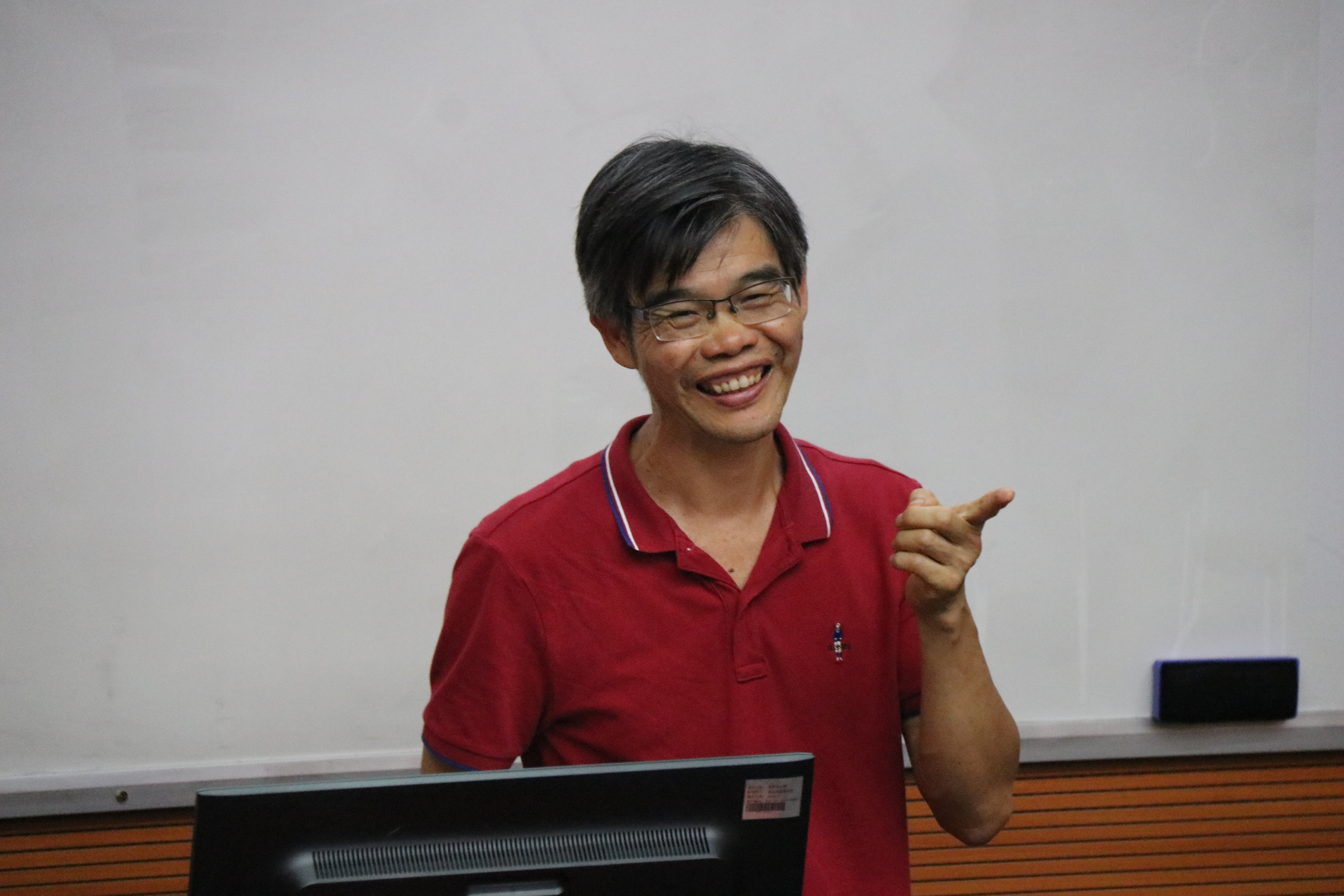
In general, if two of the following three criteria are met, the person can be regarded as Hakka people: the ancestors are Hakka, speak Hakka or have “Hakka identity”. However, seeing Hakka children are less able to speak Hakka, some professionals like Mr. Hu Xizhang and other relevant people proposed to amend the criteria: Hakka descendants are also counted as Hakkas, trying to form a Hakka identity to a certain extent. The endangerment of Hakka is inseparable from the language policy and language attitude, so the government and Hakkas must take responsibility for it. At present, some local policies have been implemented in practice, such as the use of Hakka dialects in the lower grades of elementary schools in Taiwan.
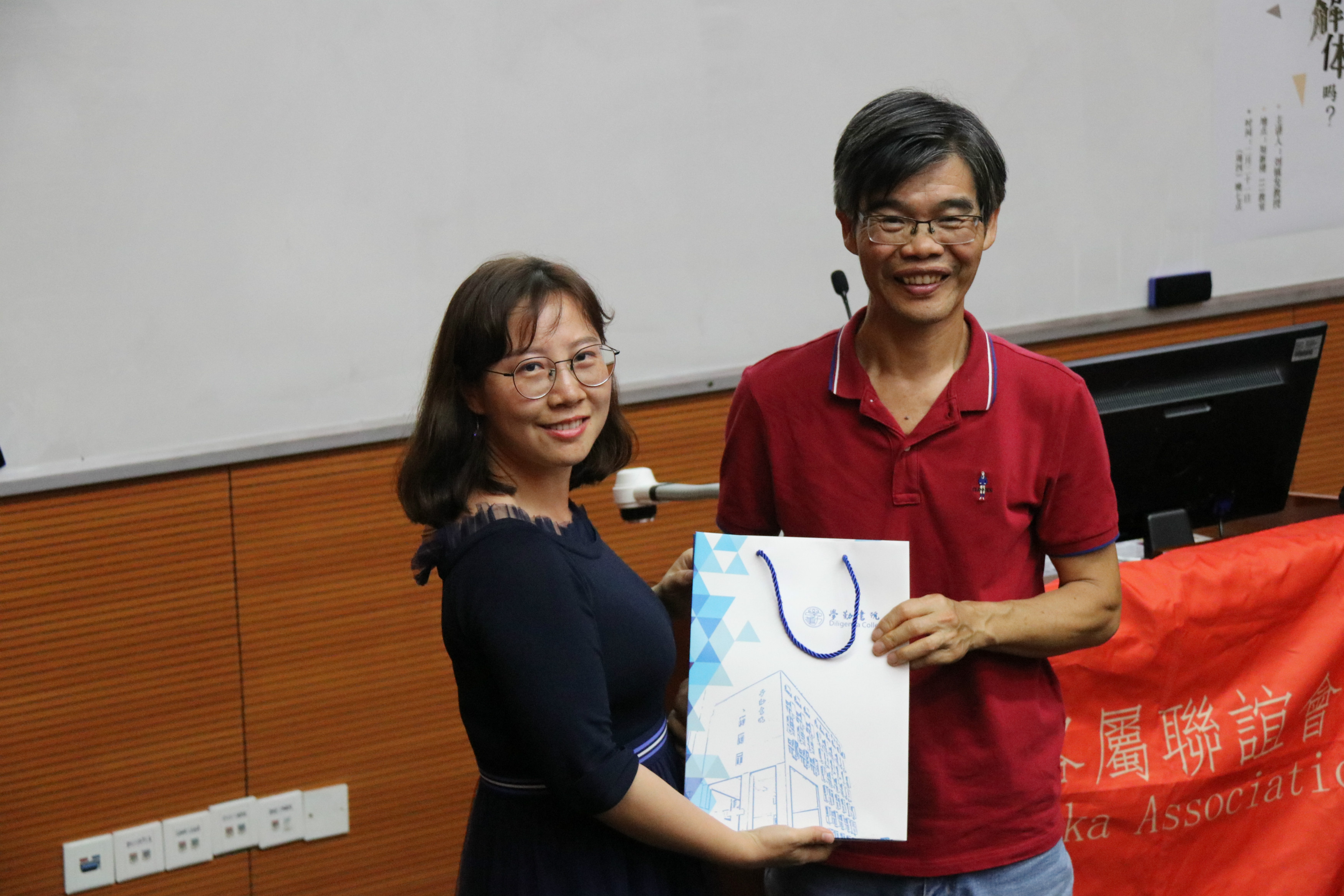
Hakka dialects must also be valued by young people and kept in society and families. We should teach Hakka language in schools, try to preserve and pass on the language to the next generation, in order to avoid the disintegration of Hakka. Conversely, if no one speaks Hakka, will there be Hakka people? No, there is no Hakka people without Hakka dialects. We have to preserve Hakka so that a thousand years of fine traditional culture and the ancestors’ hard work can be passed down. At the final Q&A session of the lecture, we were very happy to see that the teachers and students showed great interest in the Hakka language culture. There was even a music producer at the spot, who wrote songs with Hakka dialects and had published them on major websites and music platforms.
